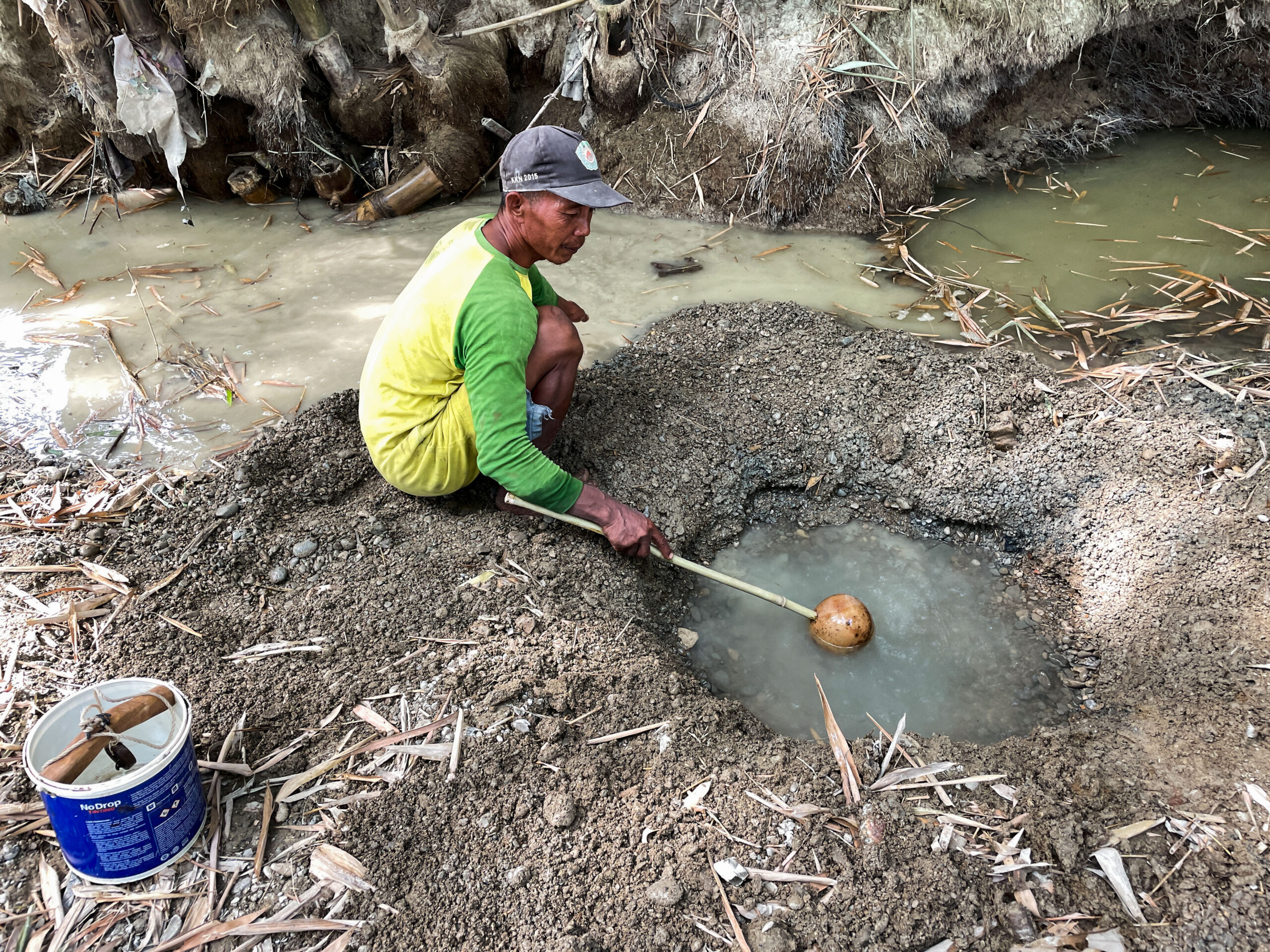By Budi Purwanto and Johan Purnomo
KARANGANYAR, Indonesia (Reuters) – It’s been four, long, hot months since Sunardi’s village has seen any rainfall as an El Nino-induced drought parches Indonesia, so the tobacco farmer does the only thing he can do to get water: dig up a dry river bed.
In an hour or two, water – salty and muddy – will fill the freshly dug hole. Sunardi, and scores of other residents in Karanganyar village in Central Java province, then take the water home to drink, wash and irrigate their slowly dying crops.

“The drought in this village has been felt since April, and there has been no rain until now. The wells in this area have dried out, so residents can only get water from the river bed,” Sunardi, who only goes by one name, told Reuters.
ALSO READ: Jill Biden pleads for help on East-African drought
“The plants here, such as corn, have all withered. Tobacco can live, but it doesn’t grow optimally, so we have to keep watering it with the river bed water too.”
Sunardi’s village has been digging up the river bed since June when the water in their wells ran out.
Indonesia’s weather agency (BMKG) said the El Niño weather phenomenon, which brings prolonged hot and dry weather, is affecting more than two-thirds of the vast nation, including all of Java, the northern areas of Kalimantan and all but the coastal areas of Sumatra.
The population of those areas exceeds 70% of Indonesia’s total population of more than 200 million people, Ardhasena Sopaheluwakan, deputy head of climatology at the BMKG, said.
Scientists say El Niño has caused record heatwaves in cities from Beijing to Rome, increasing the risk of forest fires and affecting crops such as wheat, palm oil and rice.
Agriculture accounts for nearly 14% of Indonesia’s GDP, and a third of the labour force works in farming, government data shows.
ALSO READ: Horn of Africa drought not possible without climate change – study
Tris Adi Sukoco, an official at the BMKG in Central Java, said that with rainfall rates in the region drastically lower, villagers like Sunardi should alter their crop patterns.
The farmer, however, said it was too late.
“Even if the river here is completely dry, we’ll have to find it wherever it is,” he said.


